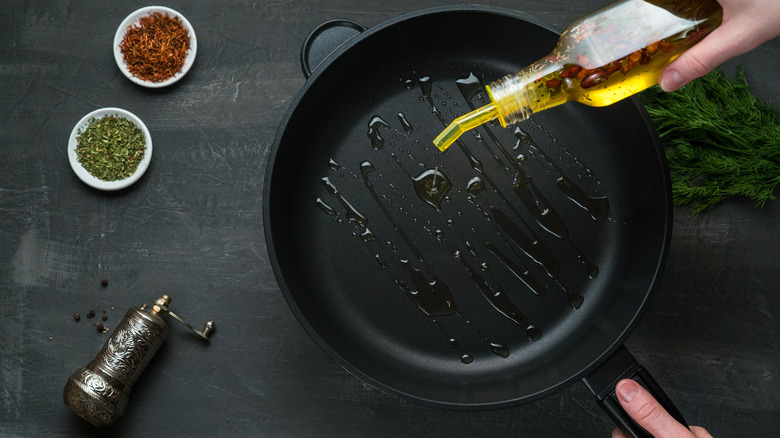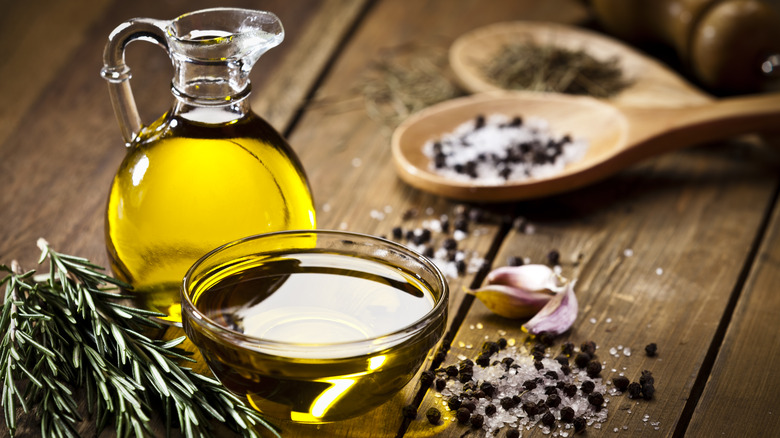The Oil You Should Never Use When Cooking In Ceramic Pans
When it comes to using ceramic pans for cooking, making the right choice of oils is crucial. Olive oils and spray oils, often considered staples in the kitchen, may not be the best options when it comes to ceramic cookware. Ceramic pans are known for their non-stick properties and ability to distribute heat evenly. However, certain oils can interfere with these qualities.
Olive oil, for instance, has a relatively low smoke point, which means it can break down and even emit smoke at high temperatures. This can lead to a compromised nonstick surface and affect the overall performance of the pan. Similarly, spray oils, while convenient, can leave a residue that is challenging to remove. This residue has the potential to gradually diminish the nonstick coating over time. By making a few simple swaps, you can ensure that your ceramic pans remain in excellent condition.
Instead of olive oils and sprays, consider using oils with higher smoke points, such as canola, coconut oil, or avocado oil, when cooking in ceramic pans. These oils are better suited for high-heat cooking and are less likely to cause damage to the pan's surface. Also, some of these oils can even be better for you. For example, avocado oil helps reduce cholesterol according to a study in the Journal of Functional Foods. Furthermore, using a small amount of butter or ghee can also be a flavorful and effective alternative. Ghee is basically clarified butter that is simmered, giving it an almost nutty flavor.
Other common mistakes that can corrode non-stick pans
Ceramic pans are the unsung heroes of our kitchens, flipping and frying with finesse, but there's trouble in the paradise of nonstick cooking and we aren't just talking about the type of oil you use. For starters, grabbing that fork while preparing scrambled eggs might appear to be a good idea. However, it's advised against. Using any type of metal on a non-stick pan is terribly corrosive and causes major damage to the coating. Not only can you ruin your pan, but you could also end up discovering bits and pieces of the pan in your breakfast.
This brings us to our next dilemma: cleaning your ceramic cookware. Improper cleaning practices, such as using abrasive scrubbers or harsh detergents, can wear away the ceramic coating and diminish its non-stick abilities. So put down your metal scrubber. Gentle cleaning with mild soap and soft sponges is crucial.
Finally, exposing ceramic pans to sudden temperature changes can cause thermal shock. For instance, transferring them from a hot stove to a cold surface can result in the warping of your beloved pan. Gradual temperature changes are critical for preserving their integrity. With proper care and storage, your ceramic pan can oil-ways stay in sizzling shape.

